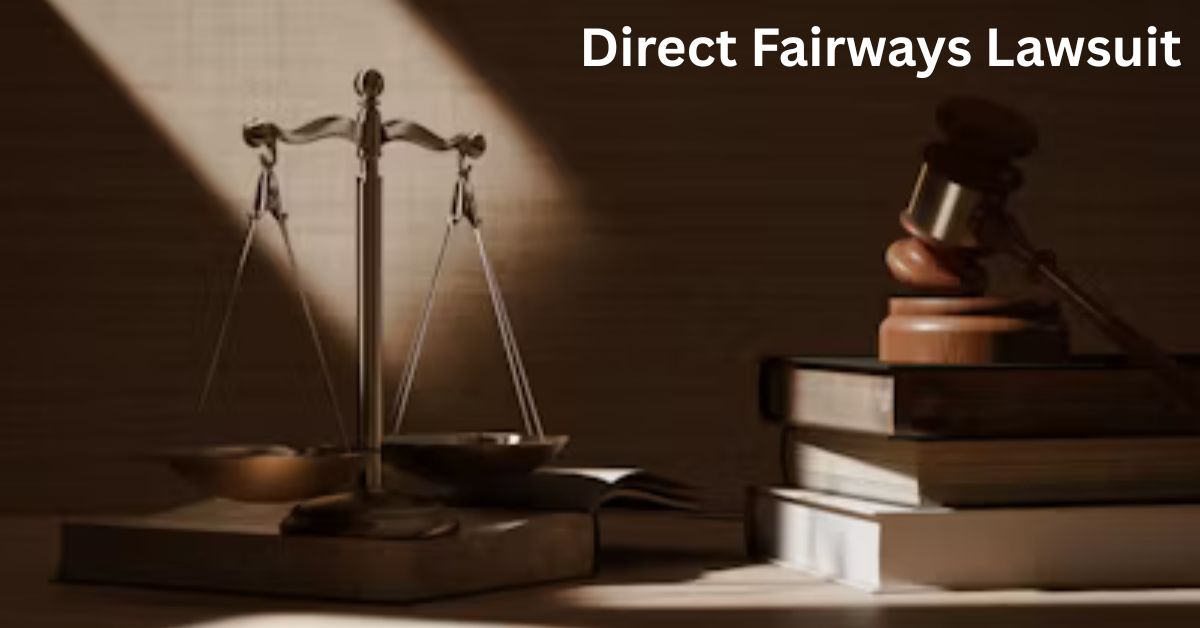If you’ve stumbled upon headlines referencing the Direct Fairways lawsuit, you’re not alone. Business owners and customers alike have raised alarms. With accusations ranging from deceptive marketing and hidden fees to questionable service delivery, the legal scrutiny surrounding the company reflects deeper concerns about transparency and trust in advertising services.
In this article, we’ll dive into the facts behind the lawsuit, analyze how Direct Fairways operates, assess the impact on affected parties, and offer insight into what comes next—for both consumers and businesses.
What’s Behind the Direct Fairways Lawsuit?
A recent legal case alleges that Direct Fairways, a golf course advertising provider, engaged in deceptive marketing practices and failed to deliver on contracted services. Complaints include clients being charged unauthorized fees and ads never materializing. These allegations have prompted legal attention and negative reviews across multiple platforms.
A Closer Look at Complaints and Legal Allegations
According to Better Business Bureau records, dozens of clients have posted complaints. Many cite repeated charges, upcharges beyond agreed terms, or advertising that was never delivered. Red flags include quarterly billing that continued even before scheduled ad placements, and reports of poor customer service follow-up.
On Reddit, small business owners describe frustrating experiences, with some suggesting escalation through the Arizona Attorney General’s office when the company failed to respond. One user recounted steps to file complaints and shared how Direct Fairways eventually responded only after government involvement.
Direct Fairways’ Official Position
Direct Fairways’ own website touts customer satisfaction and successful partnerships with golf courses across the U.S. Their Resolution Center is promoted for dispute handling.
According to a business profile, recent lawsuits escalate the issue to one of privacy and integrity. The company defends itself, noting services provided and signed agreements, though critics argue these defenses ignore delayed timelines and poor execution.
Patterns Across Complaints
Three recurring themes emerge:
-
Billing issues: Unauthorized or repeated charges reported even without explicit client approval.
-
Unfulfilled services: Advertisements either delayed beyond the 180-day timeline or not delivered at all.
-
Customer service breakdown: Promises of resolution don’t always materialize, forcing clients to escalate through third-party authorities.
These issues go beyond isolated incidents—they indicate systemic problems.
Why This Matters to Businesses
For small businesses, trust in marketing partners is vital. Wasteful spending on ads that never appear can harm both finances and reputation. When a partner like Direct Fairways is accused of not delivering, it shakes confidence in service providers across the sector.
Moreover, deceptive billing erodes trust and prompts broader skepticism toward similar advertising solutions. Businesses must be vigilant and look for clearer, more accountable vendors.
Navigating the Fallout: Consumer Protection Perspectives
If you’ve had issues with Direct Fairways:
-
Collect documentation: contracts, invoices, and communication.
-
Exhaust their Resolution Center first.
-
If unresolved, escalate through local consumer protection agencies like the AZ Attorney General’s office or the BBB.
These steps empower consumers and promote accountability.
The Broader Legal and Industry Implications
The Direct Fairways lawsuit touches on critical topics:
-
How do companies earn trust in remote marketing deals?
-
What protections should exist against overly aggressive sales practices?
-
Should advertising providers be required to prove placement before billing?
As more lawsuits emerge, these questions are likely to drive changes in regulation and best practices in marketing services.
Conclusion
The Direct Fairways lawsuit underscores how crucial transparency and accountability are in advertising partnerships. Businesses must scrutinize contracts carefully, demand proof of service, and hold providers to clear standards. Consumers, on the other hand, benefit from knowing their rights and where to escalate complaints. This case is more than one company’s missteps—it’s a wake-up call for the ad services industry. Fairness, clear communication, and customer consent need to be more than aspirations—they must be policy.
